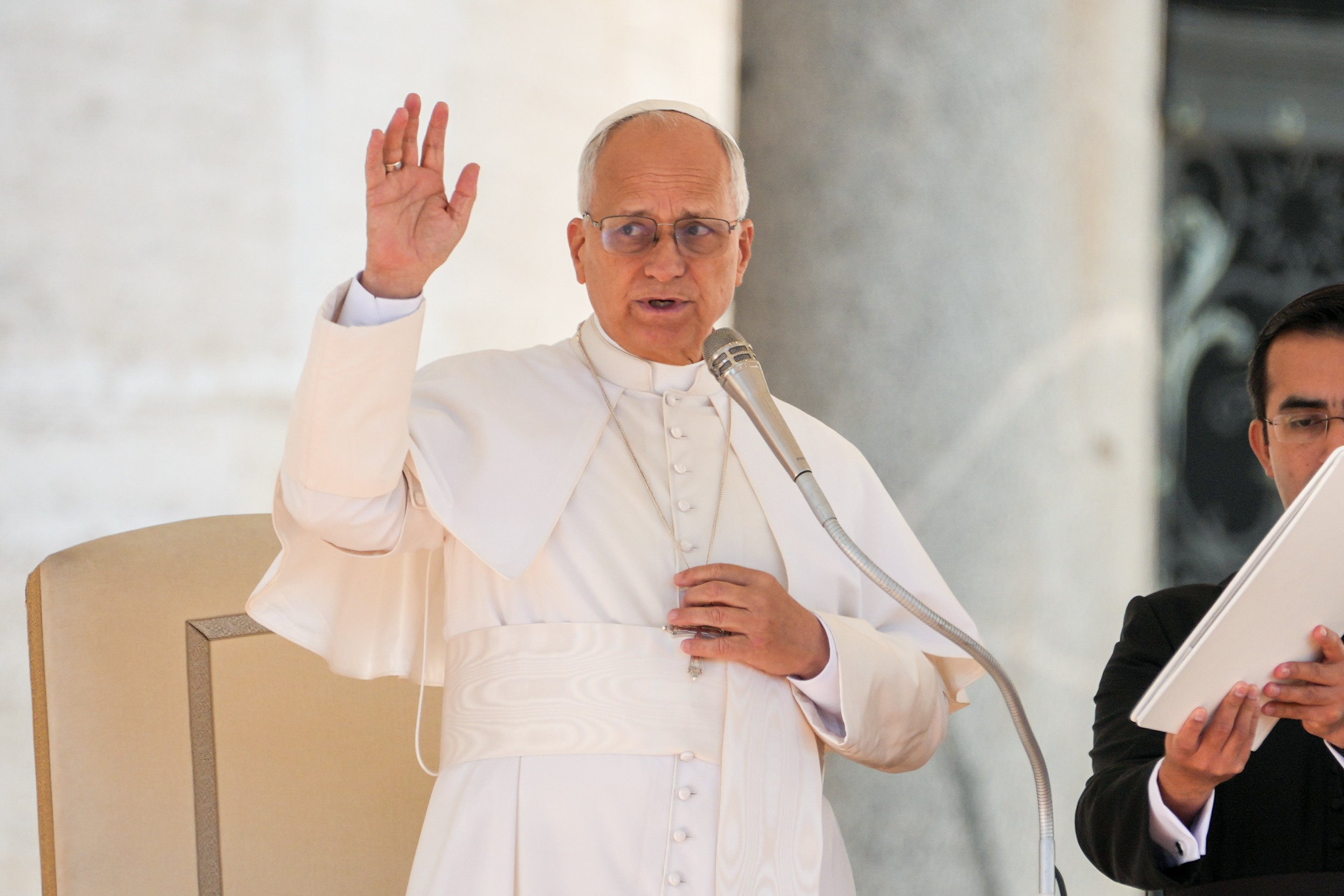April 6, 2018 at 1:53 p.m.
'The stone that the builders rejected has become the chief cornerstone. This is the Lord's doing; it is marvelous in our eyes...' -- Ps 118:22-23
With so many rich and diverse readings for the celebration of Easter, the best way forward is to give some brief pointers.
A common theme in the readings is to show the fact of the resurrection of Jesus, but also to explore what this fact means for us. At the same time, our readings narrate the history of our salvation.
We hear of the wonderful things that God has done for us. This is meant to give a clear sense of our identity. Many folks investigate their family tree to know who they are and where they have come from. Our readings are the story of God's covenant with His people, so they are the story of who we are.
At the Easter vigil (called, by St. Augustine, "the mother of all vigils"), we can hear up to seven Old Testament readings that narrate our "family history." The living words are about God's love; they are fulfilled now, especially for those who are to be baptized, and are also a powerful reminder to those already baptized.
• Hearing the story of creation (Gn 1:1-2:2), we wonder at the gift of creation and are reminded of the even more wonderful new creation that we are in Christ, through baptism.
• We fast-forward to Abraham (Gn 22:1-18), who obeys God's call to sacrifice his only and beloved son, Isaac; but, instead, God Himself provides a ram for the sacrifice. This will be true when Jesus, the beloved and only begotten Son and the Lamb of God, is sacrificed for us.
• We hear how Moses led Israel through the Red Sea (Ex 14:15-15:1) and the people were saved from slavery and death. Salvation from slavery to sin and death will come to us through the waters not of the Red Sea, but of baptism.
• Two passages from Isaiah tell us how God promises to restore His people (Is 54:1-14) and bring about a new covenant, fulfilled in Jesus, and how God feeds His people -- that all are called to feast (Is 55:1-11), to be fed by God's Word and the Eucharist.
• Our sixth reading, from Baruch (3:9-15,32-4:4), speaks of power of God's wisdom, which guides us today.
• In the seventh reading (Ezekiel 36:16-17a,18-28), God promises a "new spirit and a new heart," a promise fulfilled through the gifts of baptism, where we are indeed made new.
• The epistle (Rom 6:3-11) provides a summary of all we have heard -- especially how, in baptism, we die and rise with Christ Jesus to new life.
• The psalm (Ps 118:1-2,16-17,22-23) is a classic used again on Easter Sunday, and doubles as our Gospel acclamation. It rejoices in God's mercy and love and how the "stone rejected by the builders has become the cornerstone." For Christians, this stone is taken to refer to Jesus.
• We then hear the Easter Gospel (Mt 28:1-10), in which Matthew, as ever, wants to be clear about the details of the empty tomb and the resurrection to prove the fact of the event. The witnesses on Easter morning not only see all of this, but immediately give witness to it. We, too, are called to believe and to give witness to the resurrection in our lives.
A final word about the readings for Easter Sunday Mass during the day: In the first reading (Acts 10:34a,37-43), Peter is in the house of a new disciple called Cornelius, a Roman centurion, and Peter gives a summary of our faith. It is another reminder of the importance of being disciple-makers, the task of the Church!
There is a choice for the second reading. In the Letter to the Colossians (3:1-4), we hear of the promise of glory made possible in Jesus' resurrection. The alternative (1 Cor 5:6b-8) uses an image of yeast: We celebrate with the new yeast of sincerity and truth. As we receive the Eucharist, we become like the one we receive.
The Gospel (Jn 20:1-9) stresses the empty tomb, the haste of the disciples to see and the importance of faith: "They saw and believed," even though they still did not understand.
We, too, are called to be witnesses -- and to be so with urgency.[[In-content Ad]]
SOCIAL MEDIA
OSV NEWS
- First plenary of French bishops under Cardinal Aveline discusses turbulent topics
- Live blog: Public session of 2025 USCCB Fall assembly opens today
- US bishops celebrate Mass to ‘beg the Holy Spirit to inspire’ their fall assembly
- As deal to end shutdown advances, Catholic groups urge action on health insurance costs
- Texans vote overwhelmingly to enshrine parental rights in state constitution
- Supreme Court declines Kim Davis case seeking to overturn same-sex marriage ruling
- ‘Do you love Jesus more than your political opinion?’: Bishop Tyson says the church faces a test
- Vatican says Swiss Guards investigating alleged antisemitic gesture
- Bishop: Survival of Christian communities in Nigeria depends on security, justice
- Pope asks for extra care when using AI in medicine








Comments:
You must login to comment.